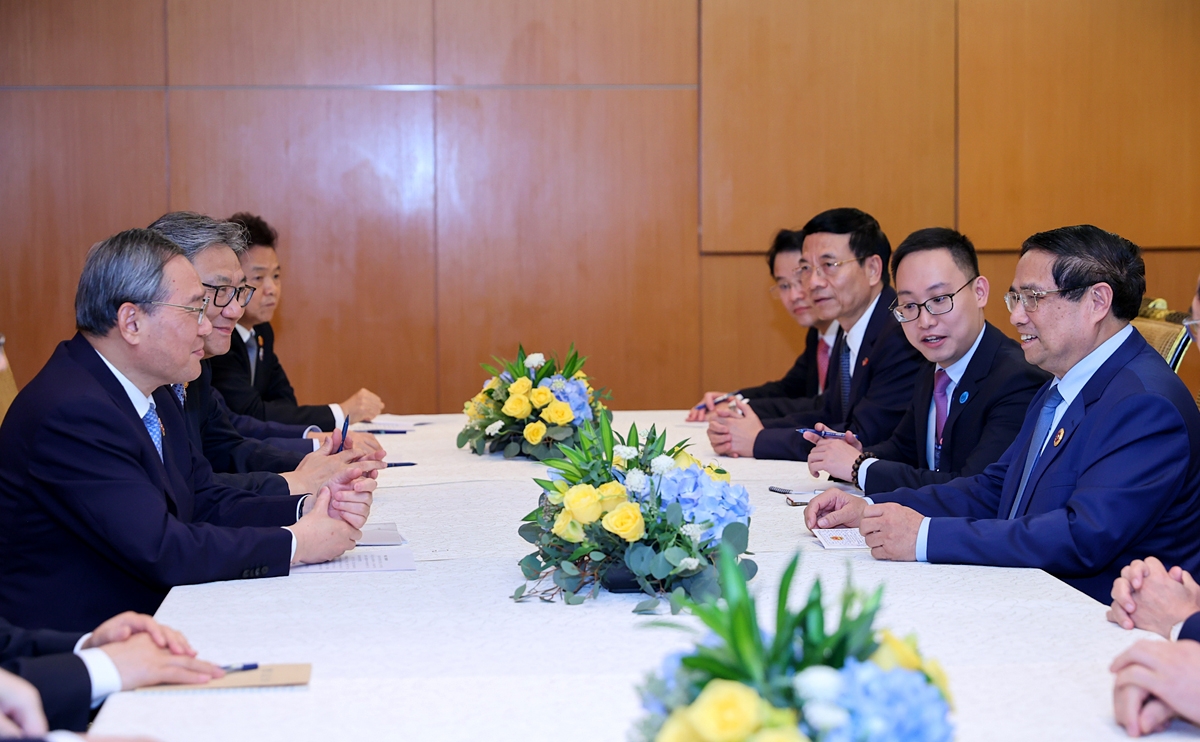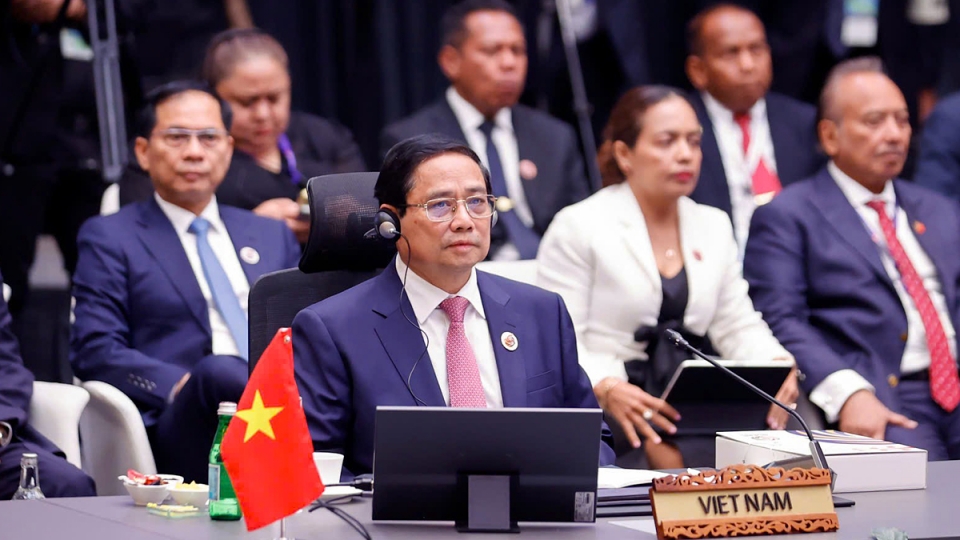Vietnam and China discuss strategic cooperation orientations
VOV.VN - Vietnamese Prime Minister Pham Minh Chinh and Chinese Premier Li Qiang outlined strategic cooperation orientations during their talks in Kuala Lumpur, Malaysia, on May 27, on the sidelines of the 46th ASEAN Summit and related meetings.

Chinh emphasised that Party General Secretary and President Xi Jinping’s recent visit to Vietnam marked a historic milestone, setting a long-term strategic direction for the development of the relations between the two Parties and two countries.
He affirmed that the Government of Vietnam and he personally are ready to closely coordinate and maintain regular exchanges with the Chinese State Council and Premier Li Qiang to promptly and effectively implement the high-level common perceptions between the two top Party leaders.
He proposed that the two sides maintain regular high-level exchanges to strengthen political trust and strategic coordination. He held that both Vietnam and China should promote balanced trade, enhance investment, and expand cooperation in science, technology, and innovation to drive new momentum in bilateral relations.
Chinh also stressed the need to prioritise the implementation of the Lao Cai - Hanoi - Hai Phong railway project that connects Vietnam with China, aiming to break ground in late 2025. He also requested China’s support in providing concessional credit, technology transfer, and human resource training for this initiative.
Li, for his part, congratulated Vietnam on its recent major anniversaries marking 95 years of the founding of the Communist Party of Vietnam, and 50 years of the liberation of the South and national reunification. He affirmed China’s commitment to working closely with Vietnam to implement the high-level consensus reached between the two Parties and countries.
He echoed Chinh’s view that the two countries should strengthen high-level strategic exchanges, consolidate political trust, and promote substantive cooperation to achieve concrete progress, especially in areas of mutual interest such as trade, high-quality investment, and railway connectivity.
The leaders agreed to continue close coordination with ASEAN countries to maintain peace and stability in the region, particularly in the East Sea, and to work towards the early adoption of a legally binding Code of Conduct (COC) in line with international law, including the 1982 United Nations Convention on the Law of the Sea (UNCLOS).





